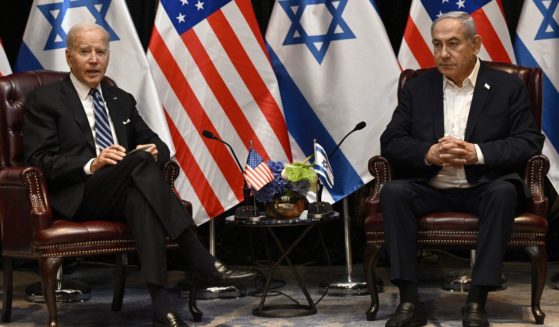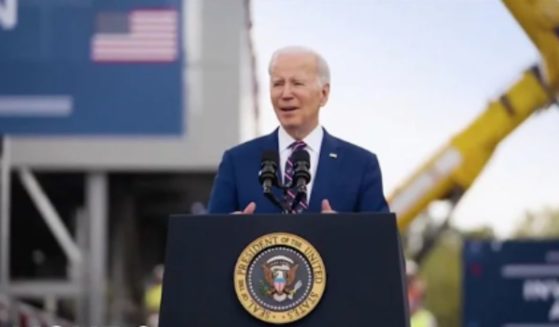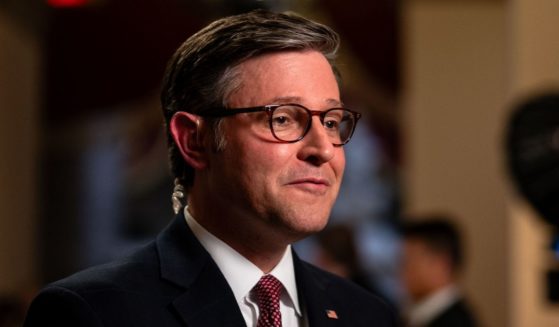Biden Moves Up Date of US Exit from Afghanistan as Taliban Sweeps Through Country
President Joe Biden announced the U.S. military operation in Afghanistan will end on Aug. 31 and acknowledged there will be no “mission accomplished” moment to celebrate.
Biden pushed back against the notion the U.S. mission has failed but also noted that it remains unlikely the government will control all of Afghanistan after the U.S. leaves.
He urged the Afghan government and Taliban, which he said remains as formidable as it did before the start of the war, to come to a peace agreement.
“We did not go to Afghanistan to nation build,” Biden said in a Thursday speech from the White House. “Afghan leaders have to come together and drive toward a future.”
The administration in recent days has framed the conflict as an “unwinnable war” and one that “does not have a military solution.” On Thursday, Biden attempted to justify the withdrawal even as the Taliban makes rapid advances in significant swaths of Afghanistan.
“How many more thousands of American daughters and sons are you willing to risk?” Biden said. He added, “I will not send another generation of Americans to war in Afghanistan with no reasonable expectation of achieving a different outcome.”
The new withdrawal date comes after former President Donald Trump’s administration negotiated a deal with the Taliban to end the U.S. operation by May 1.
After taking office, Biden announced U.S. troops would be out by the 20th anniversary of the Sept. 11, 2001, terrorist attack, which al-Qaida leader Osama bin Laden plotted from Afghanistan.
With U.S. and NATO forces rapidly pulling out in the past week, there was growing speculation that U.S. combat operations have already effectively ended.
The administration has yet to complete talks with Turkey on an arrangement for maintaining security at the Kabul airport and is still ironing out details for the potential evacuation of thousands of Afghans who assisted the U.S. military operation.
Biden said that prolonging U.S. military involvement would have led to an escalation of attacks on American troops and NATO allies.
“The Taliban would have again begun to target our forces,” Biden said. “The status quo was not an option. Staying meant U.S. troops taking casualties. American men and women. Back in the middle of a civil war. And we would run the risk of having to send more troops back in Afghanistan to defend our remaining troops.”
The president added that there is no “mission accomplished” moment as America’s longest war comes to an end.
“The mission was accomplished in that we got Osama bin Laden and terrorism is not emanating from that part of the world,” he said. U.S. forces killed bin Laden in 2011.
Afghan military commanders this week accused U.S. forces of vacating Bagram Airfield — the epicenter of the conflict — with no notice.
Remaining U.S. troops are now concentrated in Kabul, the capital. The Pentagon said the top U.S. commander in Afghanistan, Gen. Scott Miller, is expected to end his tour of duty this month.
Biden, answering questions from reporters after his remarks on Thursday, said that Kabul falling to the Taliban would not be an acceptable outcome.
“Do I trust the Taliban? No,” Biden said. “But I trust the capacity of the Afghan military, who is better trained, better equipped and more competent in terms of conducting war.”
Biden continues to face pressure from congressional lawmakers to offer further details on how he intends to go about protecting thousands of Afghans who assisted the U.S. military. Many are fearful they will be targets of the Taliban once the U.S. withdrawal is complete.
The White House says the administration has identified U.S. facilities outside of the continental United States where evacuated Afghans would potentially stay while their visa applications are processed. Biden added that 2,500 Afghans have been granted special immigrant visas since he took office in January.
“Our message to those women and men is clear,” Biden said. “There is a home for you in the United States if you so choose. We will stand with you, just as you stood with us.”
Biden argued that the U.S. objectives in Afghanistan were completed long ago.
“We went for two reasons: one, to bring Osama bin Laden to the gates of hell, as I said at the time,” Biden said. “The second reason was to eliminate al-Qaida’s capacity to deal with more attacks on the United States from that territory. We accomplished both of those objectives. Period.
“That’s why I believe this is the right decision and quite frankly overdue.”
The president faced Republican criticism following his speech.
“The Taliban is gaining more ground by the day, and there are targets on the backs of our people and our partners,” said Rep. Michael McCaul of Texas, the top Republican on the House Foreign Affairs Committee.
“But rather than taking the opportunity to reassure the American people there are sufficient plans in place to keep American diplomats and our Afghan partners safe, President Biden only offered more empty promises and no detailed plan of action.”
The Western Journal has reviewed this Associated Press story and may have altered it prior to publication to ensure that it meets our editorial standards.
Truth and Accuracy
We are committed to truth and accuracy in all of our journalism. Read our editorial standards.












